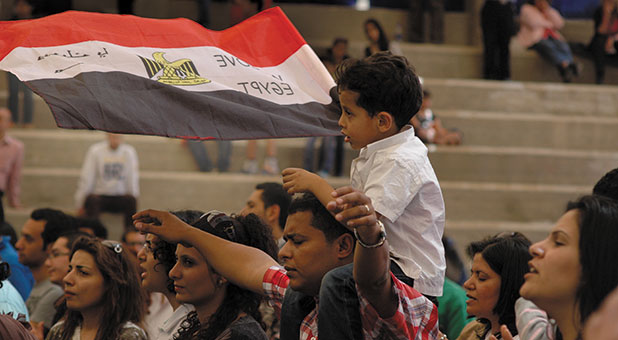Egyptian Christians Report Move of God Despite Persecution
A Central Role
Known to many as the place that gave rise to Israel’s exodus to the Promised Land, Egypt occupies a central role in the history of Christianity. Home to three-fourths of the Christians in the Middle East, it is the birthplace of the Coptic Orthodox Church, which traces its lineage to the mid-first century and the apostle Mark as its founder.
Copts represent the overwhelming number of Christians in Egypt, which is estimated at roughly 13 percent of a population of some 84 million. Though small in number, Egyptian evangelicals include members of the Assemblies of God, the International Pentecostal Holiness Church, the Pentecostal Church of God and the Church of God of Prophecy. Yet regardless of background, maintaining a witness for Christ there has proved challenging, says a parish priest who grew up in Cairo before moving to Southern California at age 14.
Father Joseph Boules, who oversees St. Mary & St. Verena Coptic Orthodox Church in Anaheim, Calif., says centuries of persecution have enabled all Christians in Egypt to learn to live with militants trying to disrupt worship services and terrorize prayer meetings. “Christians in the Western world are living in true freedom,” says Boules, whose parish has recently welcomed a number of Egyptian refugees. “A lot of times people don’t realize what a gem they have—their freedom and being able to practice their faith freely.”
Yet persecution can stimulate spiritual growth. Boules points to the terrorist bombing of a Coptic church in Alexandria shortly after midnight on New Year’s Day 2011, an incident whose shockwaves reverberated worldwide. Landing a week before the Orthodox celebration of Christmas, many feared the attack would dim turnouts for those services. Instead, attendance doubled. It was an amazing show of faith, since people came not knowing if they would be the next martyrs.
“It was just another day of Copts living in Egypt where we are attacked,” Boules says. “We don’t react in any illegal way. We don’t carry weapons or condone burning of the Quran or mosques or anything like that. We would never do that. It’s against the core of Christ’s teachings about love.”
Nor was that Christmas display of faith a temporary phenomenon. Later in 2011, more than 72,000 gathered at the Cave Church for an all-night prayer meeting. Soliman labels “11/11/11” as a pivotal event that marked a turnaround in the country’s denominational divisions.
As evidence of the change, a Coptic priest was among the speakers at Count It Right. Bishop Tawadros, the Coptic pope appointed last November, has proven receptive to evangelicals and Catholics. “Before that, there was a lot of division between church leaders,” says Soliman, who led an Arabic-speaking church prior to planting an inter-ethnic congregation three years ago. “They didn’t cooperate or visit each other’s churches. Today we see the exact opposite. The charismatic movement there is uniting Orthodox and evangelical.”
The Internet and modern communications are also playing a role in the spiritual groundswell. Once isolated from the rest of the world, today millions of Egyptians can access the Bible online or watch networks like Alkarma TV, a California-based operation that reaches all of Egypt via satellite and boasts thousands that have accepted Christ and have called to request Bibles and other literature.













